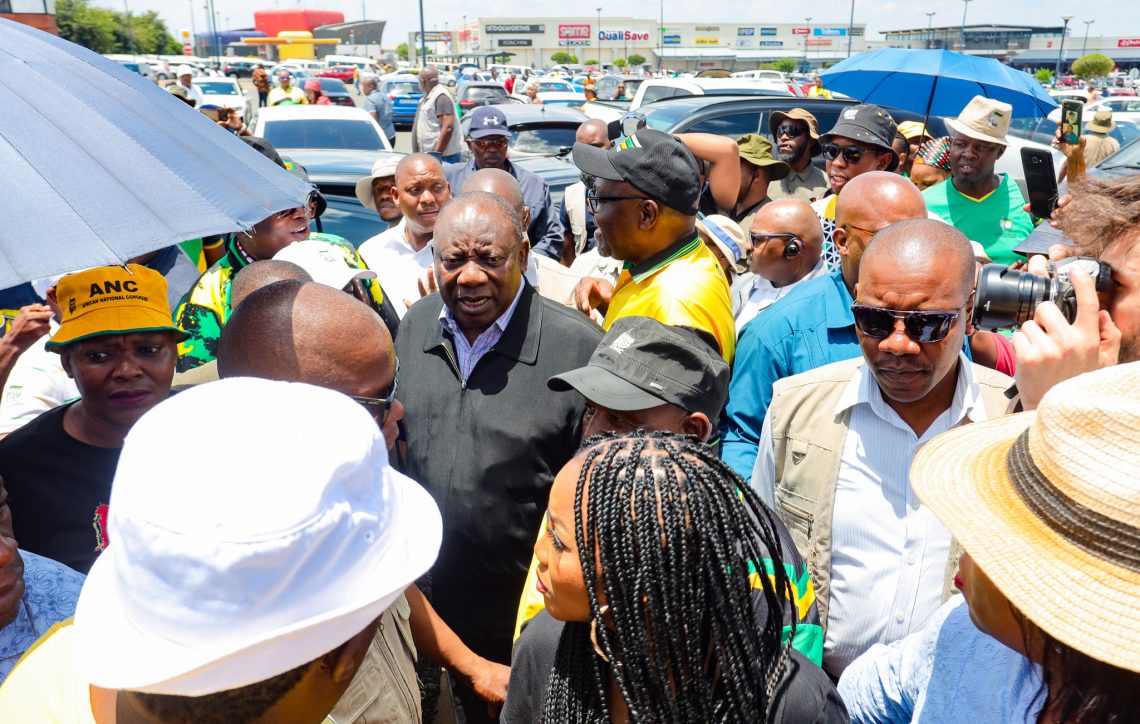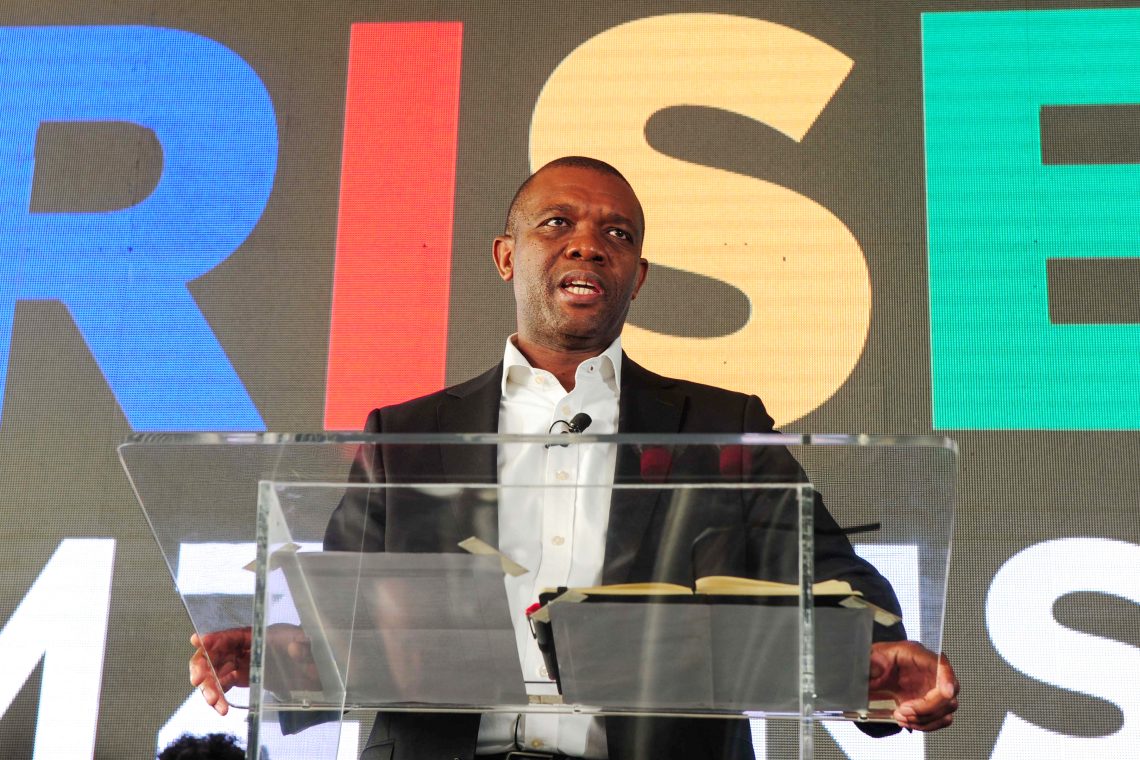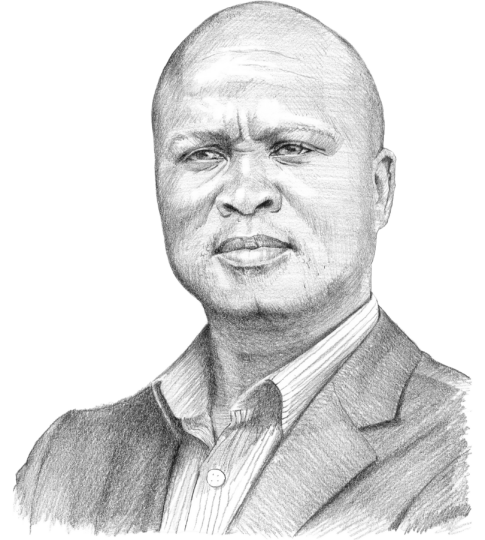South Africa’s upcoming election could change everything
The general elections on May 29 will be pivotal as the ruling ANC’s grip loosens, signaling potential power shifts and policy changes for the African leader.

In a nutshell
- The African National Congress has dominated post-apartheid politics
- Corruption and poverty are top issues in Africa’s third-largest economy
- The vote, coming in May, may propel opposition parties into power
South Africa’s general elections on May 29, 2024, are important for two major reasons: The new 400-member National Assembly chooses the president and, for the first time since Nelson Mandela became the country’s first post-apartheid president 30 years ago, the African National Congress (ANC) may lose power.
As the political party credited with leading the liberation struggle against the apartheid regime, the ANC has since 1994 enjoyed nearly unshakeable hegemony. It came to power with moral legitimacy and a strong presumption of readiness to govern and meet the nation’s high expectations. The party has steered the country’s foreign affairs, trade relations, domestic social policy and overall political agenda since then. It also made the country of nearly 60 million people, with the third-largest African economy, a more racially inclusive society.
This transformative agenda has included the Black Economic Empowerment (BEE) policy, which leveraged government assistance to help historically disadvantaged communities. It became controversial for its cronyism that helped politically connected individuals do business with the state. Despite its cost, critics say the public did not get much benefit.
But the ANC, by virtue of its role in ending apartheid and the enduring legacy of the late Nelson Mandela, president from 1994-1999, did not contend with any formidable opposition to putting its stamp on domestic policy and foreign relations.
Given that South Africa is a continental economic powerhouse, successive ANC-led governments also extended their influence regionally by dominating the policies of the Southern African Development Community (SADC), an influential trade and economic union of 16 regional nations. This has not always meant unity, however. South Africa’s neutrality in Russia’s war against Ukraine is contentious. Yet the liberation parties ruling SADC member states mostly share the ANC’s philosophy on how the region should relate to major global powers.
The SADC has also lacked strong opposition parties. Foreign policy is rarely a major issue in election campaigns in these countries because international relations are seen as the exclusive preserve of the political elites.
Why the ANC is losing support
A changing South Africa now seems prepared to hold the ANC accountable for long-standing corruption, poverty, pollution, high unemployment and a deteriorating business climate. An increasing number of South Africans believe the nation has too many migrants, especially from neighboring Zimbabwe.
The party, led by President Cyril Ramaphosa, is facing an exodus of leaders fed up with its governance. Its support stands at less than 50 percent support in recent polling.
One prominent party stalwart, Mavuso Msimang, the head of the ANC’s Veterans League, resigned on December 8, 2023, over corruption only to rescind the decision less than a week later and remain in the party. But his rebuke of the party was scathing.
“Of course, the ANC did not invent corruption. We inherited a morally bankrupt state and that was built on the most profound forms of corruption. When we took over government in 1994, we had the moral high ground, and the conviction that we would be able to root out the old-boy networks that had benefitted from, and strangled, the apartheid economy,” Mr. Msimang wrote. “Yet, three decades later, the ANC’s track record of corruption is a cause of great shame. The corruption we once decried is now part of our movement’s DNA. This has had dire consequences for the most vulnerable members of our society.”

The state of opposition parties
Despite a clear constitutional provision for multiparty democracy and rotation of leadership, opposition parties in South Africa have had trouble convincing the electorate to let them govern.
The ANC was confident that it did not have to justify its policies, even controversial elements, such as its warm ties with China and Russia. The ANC still affords these two nations residual goodwill from their days as allies in the struggle against apartheid. But these close ties raise questions about the ANC’s commitment to global democracy and human rights, principles upon which post-apartheid South Africa is founded.
Conditions are ripening for discontented voters to finally elevate opposition parties to power, and they will have plenty of parties to choose from. Up to 350 parties could compete.
New forces are emerging. One of them is the RISE Mzansi party, founded in April 2023. During the party’s launch in Pretoria, its leader Songezo Zibi, a former journalist, underscored the popular discontent. He pledged economic growth and debt reduction.
“South Africa now spends more money paying interest on loans than we do on policing, health, infrastructure and other needs,” Mr. Zibi said, according to Bloomberg.
Another new party has the backing of former South African President Jacob Zuma, who remains popular despite long being mired in allegations of corruption. Mr. Zuma, who served as president from 2009-2018, is supporting a new party called uMkhonto weSizwe, MK for short, although he remains a member of ANC. The new party is named after the former armed wing of the ANC.
Currently, the ANC has 230 out of parliament’s 400 seats – nearly 58 percent – out of 14 parties represented. All other parties trail far behind. Only four have 10 or more seats. They are the Democratic Alliance with 84, the Economic Freedom Fighters with 44, the Inkatha Freedom Party with 14 and Freedom Front Plus with 10.
The Economic Freedom Fighters is led by Julius Malema, who was expelled from the ANC, and promotes a radical manifesto that supports expropriating white-owned property and nationalization of banks and mines.
Scenarios
Likely: ANC loses power or is forced into a coalition government
South Africa will likely experience significant political realignment in the form of the ANC losing power or, in the best-case scenario for the party, governing through a coalition agreement. The effects of this shift will reverberate across the SADC region and will bring uncertainty about how South Africa’s foreign policy might change and how any new government might reshape the regional agenda.
The 2024 elections could result in rethinking South Africa’s neutrality in Russia’s war on Ukraine, for example. It is also interesting to consider how South Africa’s relations with Israel will change if the ANC loses power. The government has openly supported Palestinian liberation organizations – considered terrorists by many in the global community. It even brought a case to the International Court of Justice accusing Israel of genocide. Relations with Russia, China and the United States might be revisited as well.
Unlikely: ANC stays in power
Even in the unlikely scenario in which the ANC survives the elections and retains power, opposition parties are set to play a major role in key policy decisions after the elections. This includes foreign policy, the exclusive domain of the ANC now. No matter the outcome of the elections, South Africa will soon reexamine its national interests and place in the global community.
For industry-specific scenarios and bespoke geopolitical intelligence, contact us and we will provide you with more information about our advisory services.









